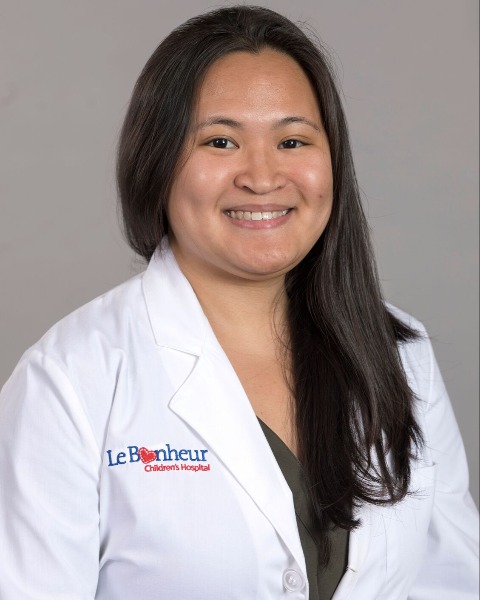Quality Improvement/Patient Safety: All Areas
Category: Abstract Submission
Quality Improvement/Patient Safety V - Resident QI and Educational Intervention QI
413 - Evaluation of a Resident-led Documentation Initiative of Pediatric Severe Sepsis Electronic Alerts
Monday, April 25, 2022
3:30 PM - 6:00 PM US MT
Poster Number: 413
Publication Number: 413.445
Publication Number: 413.445
Kathleen Cao, Le Bonheur Children's Hospital, Memphis, TN, United States; Andrew S. Astin, University of Tennessee Health Sciences Center, Bartlett, TN, United States; Alexander Kingsbury, University of Tennessee Health Science Center College of Medicine, Memphis, TN, United States; Cynthia D. Cross, Le Bonheur Children's Hospital, Collierville, TN, United States; Alina N. West, University of Tennessee Health Science Center College of Medicine, Memphis, TN, United States; Kim Giles, Le Bonheur Children's Hospital, Memphis, TN, United States; Kelley Lee, Le Bonheur Children's Hospital, Memphis, TN, United States; Marley M. Lemons, Le Bonheur Children's Hospital, Memphis, TN, United States; Samir H. Shah, Univesty of Tennessee Health Sciences Center, Memphis, TN, United States; Bindiya Bagga, University of Tennessee Health Science Center College of Medicine, Memphis, TN, United States

Kathleen Cao, MD
PGY3
Le Bonheur Children's Hospital
Memphis, Tennessee, United States
Presenting Author(s)
Background: Timely recognition and prompt management of severe sepsis (SS) in hospitalized pediatric patients is vital and can be challenging. An algorithm for real-time identification of SS integrated within the electronic medical record (EMR) was developed and fully implemented at our tertiary care children’s hospital since 2018. Residents on inpatient teams are responsible for assessment and management of the non-ICU SS alerts. Patient evaluation by residents was variable despite the algorithm.
Objective: We present the preliminary analysis of a resident-led institutional QI project to improve resident assessment and documentation during SS alert evaluations as well as improve SS outcomes.
Design/Methods: After IRB approval, baseline data was collected by reviewing all non-ICU pediatric SS alerts (1-18 years) from April-June 2021. Multiple PDSA cycles were performed with each intervention followed by review of resident SS alerts documentation between interventions. Specific metrics reviewed included time to resident notification, resident time to bedside and evaluation, timeliness, and content of documentation. First PDSA cycle was creation and introduction of an EMR “sepsis macro” presented at a monthly house-staff meeting (6/2021) followed by resident led peer education during inpatient morning reports on SS evaluation (7/2021). Pre and post education surveys were conducted.
Results: Prior to introduction of the first PDSA cycle, resident documentation for a sepsis evaluation was at 42% during the months of 4/2021 to 6/2021. As of 12/1/2021, resident documentation has improved to 70-73% with ongoing PDSA cycles and resident education. Resident education is ongoing but has been well-received by residents with current data showcasing improvement in sepsis understanding from 76% to 87.5% through the pre- and post-survey.Conclusion(s): Resident experience with SS management can be variable. A standardized method of resident documentation for SS evaluations and resident education contributed to timely identification and management of SS. Our project highlights the importance of involving residents in such initiatives and the value of peer education. The knowledge gaps and barriers to documentation were better identified by the residents who led this initiative, similar models of peer education could be adopted for other QI initiatives.
CV - Kathleen CaoCV - Kathleen Cao (FINAL).pdf
Objective: We present the preliminary analysis of a resident-led institutional QI project to improve resident assessment and documentation during SS alert evaluations as well as improve SS outcomes.
Design/Methods: After IRB approval, baseline data was collected by reviewing all non-ICU pediatric SS alerts (1-18 years) from April-June 2021. Multiple PDSA cycles were performed with each intervention followed by review of resident SS alerts documentation between interventions. Specific metrics reviewed included time to resident notification, resident time to bedside and evaluation, timeliness, and content of documentation. First PDSA cycle was creation and introduction of an EMR “sepsis macro” presented at a monthly house-staff meeting (6/2021) followed by resident led peer education during inpatient morning reports on SS evaluation (7/2021). Pre and post education surveys were conducted.
Results: Prior to introduction of the first PDSA cycle, resident documentation for a sepsis evaluation was at 42% during the months of 4/2021 to 6/2021. As of 12/1/2021, resident documentation has improved to 70-73% with ongoing PDSA cycles and resident education. Resident education is ongoing but has been well-received by residents with current data showcasing improvement in sepsis understanding from 76% to 87.5% through the pre- and post-survey.Conclusion(s): Resident experience with SS management can be variable. A standardized method of resident documentation for SS evaluations and resident education contributed to timely identification and management of SS. Our project highlights the importance of involving residents in such initiatives and the value of peer education. The knowledge gaps and barriers to documentation were better identified by the residents who led this initiative, similar models of peer education could be adopted for other QI initiatives.
CV - Kathleen CaoCV - Kathleen Cao (FINAL).pdf
